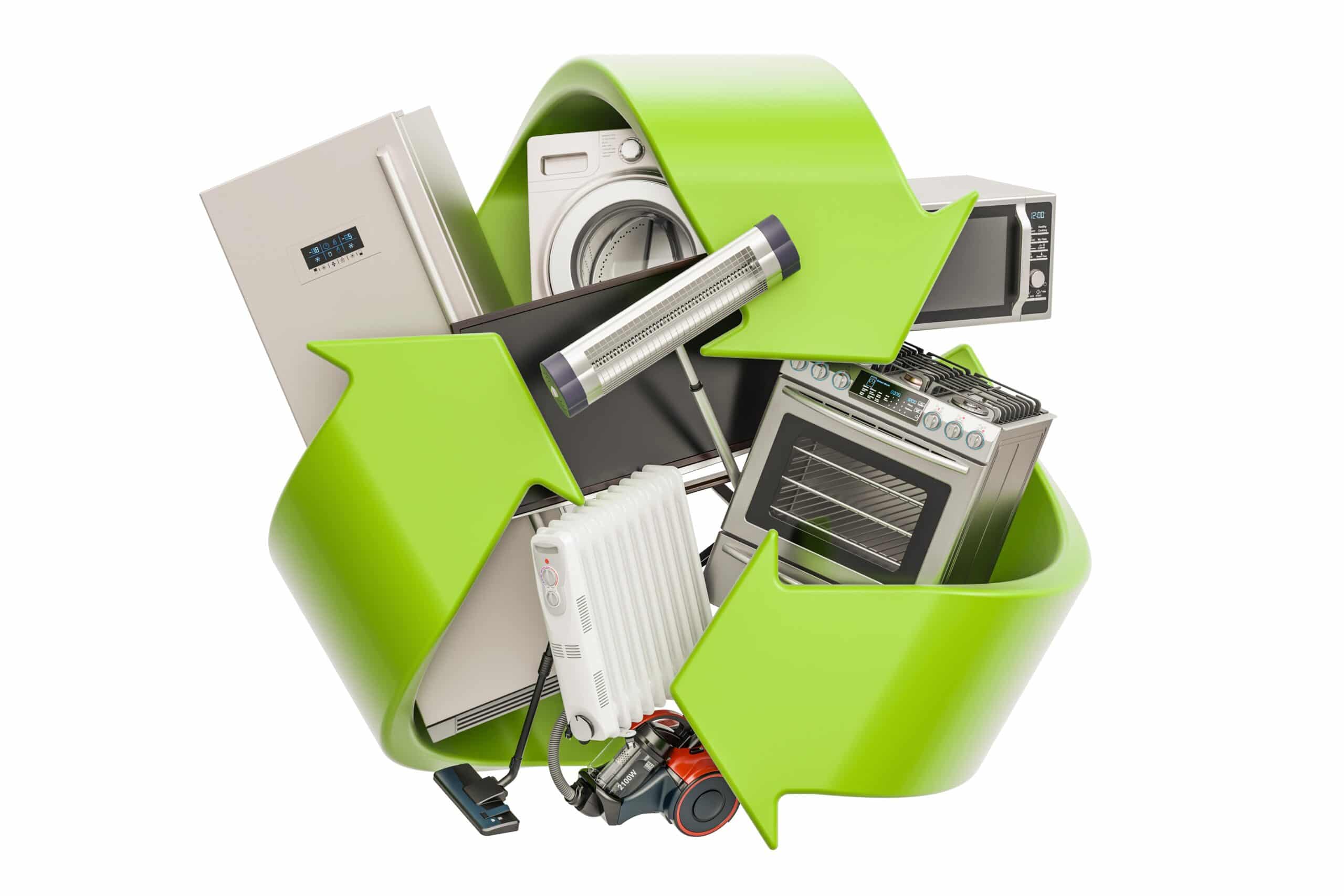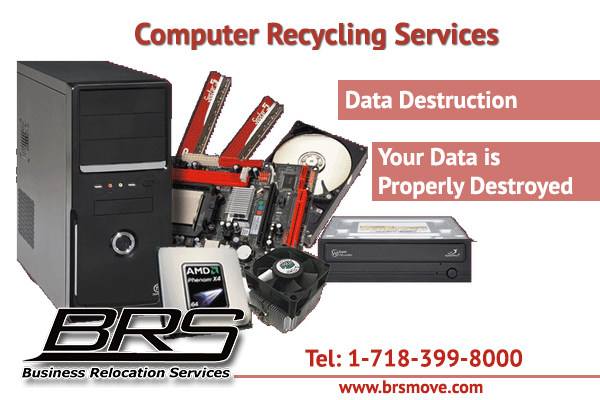Go Eco-friendly: Effective and Secure Computer Recycling Options
Go Eco-friendly: Effective and Secure Computer Recycling Options
Blog Article
Sustainable IT Solutions: Trustworthy Computer System Recycling Solutions
In light of this, the demand for trustworthy computer recycling solutions has never been more critical. In this discussion, we will certainly discover the ecological effect of e-waste, the benefits of accountable computer system recycling, how to choose a reliable recycling solution, the reusing process for computers and electronic tools, and the duty of federal government regulations in e-waste management.
The Ecological Effect of E-Waste
The incorrect disposal of digital waste, commonly understood as e-waste, has substantial ecological effects. E-waste describes disposed of digital devices such as smart devices, televisions, and computer systems (computer recycling). These gadgets include hazardous materials such as lead, mercury, cadmium, and brominated flame resistants, which can be hazardous to both human health and the environment if not effectively handled
When e-waste is poorly disposed of, it commonly winds up in garbage dumps or is blazed, releasing toxic substances right into the dirt, water, and air. The release of these harmful products can infect groundwater, pollute the air, and add to dirt degradation, positioning major health risks to nearby areas and ecological communities.
Additionally, the inappropriate disposal of e-waste also adds to the deficiency of natural sources. computer recycling. If effectively recycled, lots of digital tools consist of valuable metals like gold, silver, and copper that can be recovered and reused. When e-waste is not reused, these valuable resources are lost, and the demand for new raw materials increases, leading to enhanced mining activities and further environmental deterioration.
To alleviate the environmental impact of e-waste, appropriate recycling and disposal techniques have to be used. This consists of the liable collection, taking down, and recycling of digital tools to recoup beneficial products and guarantee the risk-free management of hazardous substances. Executing efficient e-waste management techniques is crucial to protect the atmosphere, save sources, and advertise a lasting future.

Benefits of Accountable Computer Recycling
Effectively reusing computer systems provides a multitude of advantages, including ecological preservation and source conservation. Responsible computer system recycling not only aids stop electronic waste from ending up in garbage dumps, but it likewise minimizes the need for raw products and energy in the production of new tools.
One of the most considerable advantages of accountable computer system recycling is the conservation of the atmosphere. When digital waste is incorrectly dealt with, it can release unsafe substances such as lead, mercury, and cadmium right into the soil and water, posing a danger to communities and human wellness. By reusing computer systems, these harmful products can be safely extracted and taken care of, reducing the threat of pollution.
An additional advantage is resource preservation. Computers consist of valuable materials like gold, light weight aluminum, copper, and silver, which can be recuperated and reused via reusing procedures. By removing and reusing these materials, the need for mining new sources is lowered, conserving all-natural sources and reducing the environmental impact of resource removal.
Furthermore, accountable computer system reusing helps to decrease energy intake. Production brand-new computer systems calls for a significant amount of energy, from the removal of raw products to the setting up procedure. By reusing computers and reusing their components, the energy-intensive manufacturing process can be prevented, bring about a decrease in greenhouse gas emissions and a much more lasting usage of energy sources.
Just How to Pick a Trustworthy Computer System Recycling Solution
When choosing a computer system recycling service, it is important to take into consideration a few vital elements to ensure that you choose a trustworthy and reliable company. Data safety and security is a vital problem when recycling computer systems, as delicate information kept on old gadgets can be at risk to burglary or abuse. By taking into consideration these aspects, you can select a computer recycling solution that is honest, reliable, and environmentally liable.
The Recycling Process for Computer Systems and Digital Instruments
To make certain liable disposal and minimize environmental influence, recognizing the recycling process for computers and electronic tools is vital when choosing a trustworthy recycling solution. The recycling procedure for these this hyperlink gadgets usually involves numerous phases.
Firstly, the gadgets are collected from people, businesses, or drop-off factors. This collection process might include transport logistics and protected handling to secure the delicate information included within the devices. As soon as gathered, the gadgets are arranged based on their kind, such as desktops, smart devices, or laptop computers.
After arranging, the devices undertake a thorough data damage procedure to make sure that any kind of personal or sensitive details is completely erased. This action is vital to protect the privacy and safety of companies and people. Data damage approaches may include cleaning, degaussing, or physical devastation of the storage media.
Next, the gadgets are dismantled into their specific parts. This enables the splitting up of various products, such as plastics, metals, and circuit boards. These materials are then sent to specialized recycling facilities for more processing.
The recycling facilities utilize different methods to draw out useful products from the digital waste. These materials can be reused or repurposed in the manufacturing of new products. The continuing to be waste is thrown away in an eco liable way, adhering to regulatory guidelines.
The Duty of Federal Government Regulations in E-Waste Management
Federal government policies play a critical duty in the reliable administration of e-waste. With the constant development of the electronic devices market and the enhancing worry for ecological sustainability, the demand for appropriate disposal and recycling of electronic waste has actually come to be extra obvious. Government laws aid to ensure that e-waste is managed in a responsible and sustainable way.
One of the primary duties of government regulations is page to establish criteria and guidelines for e-waste management. These regulations define the correct methods for collection, transport, and recycling of digital waste. By establishing these criteria, read this governments can make certain that e-waste is managed in a manner that lessens its impact on the setting and human wellness.
Federal government regulations additionally play an important duty in implementing the proper disposal of digital waste. They require makers and sellers to take duty for the items they market and generate. This includes carrying out take-back programs, where producers are responsible for accumulating and recycling electronic waste from customers. These policies help to change the burden of e-waste monitoring from the private customer to the industry, ensuring that digital waste is managed in a much more lasting manner.

Verdict
To conclude, it is crucial to take into consideration the environmental impact of e-waste and select a credible computer recycling solution to properly take care of digital devices. By complying with federal government guidelines and taking part in appropriate reusing procedures, we can minimize the adverse results of e-waste on the atmosphere and promote a much more lasting future.
In this discussion, we will certainly check out the environmental impact of e-waste, the benefits of responsible computer recycling, how to choose a trustworthy recycling solution, the recycling procedure for computer systems and electronic gadgets, and the duty of federal government guidelines in e-waste administration. Computer systems have valuable products like gold, aluminum, copper, and silver, which can be recouped and reused through reusing procedures.In addition, liable computer recycling aids to minimize energy consumption. Information safety is a critical concern when recycling computer systems, as sensitive info kept on old devices can be at risk to theft or misuse. By taking into consideration these aspects, you can choose a computer system recycling service that is honest, reputable, and environmentally responsible.
Report this page